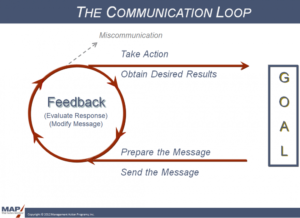Don’t Be a Whiner
And I’m not talking about somebody who enjoys a glass of merlot or chardonnay! While every leader, whether outwardly or deep down inside, might feel the need to whine about this or that from time to time, chronic whining quickly erodes leadership credibility. Like senseless worrying, incessant whining does little to move you and your organization toward important goals. It can damage morale, stifle creative solutions, and paint you as a weak leader, which undermines your ability to be effective.
Click here to download our free effective communication checklist.
Why doesn’t whining work — particularly for leaders?
When leaders whine, this sets the precedent for others to whine as well. This drags down people, productivity and, ultimately, profitability. Not only will these staff members spend time and energy whining with each other, but they’ll likely whine a lot to you, too, wasting your critical time, energy — and dollars. Thinking before speaking is key because if you whine about a problem, you’re essentially inviting others to whine about it, too. Ask yourself first: Do I really want that to happen? Are the consequences of complaining really worth my whine?When leaders whine, it exposes their vulnerabilities. They’re viewed as incapable of both self-control and controlling “the ship” in hazardous waters. They’re perceived as victims rather than survivors. The great leaders I’ve worked for took adversity head on and kept their feelings and words in check.When leaders whine, it’s annoying, particularly when the company culture is generally a positive, up-beat, can-do sort of one. Such leaders stick out like a sore thumb, and the consequences of chronic whining can be even more painful to their professional aspirations. In fact, whining can be a downright derailer in terms of a career in leadership. It’s near impossible to get (or stay) ahead professionally if you’ve become labeled as a whiner.
That said, a little bit of venting is totally alright — it’s even Ok to feel sorry for yourself…for a minute. For instance, if you’ve experienced a failure or setback, take a moment to recognize your feelings and express them to someone, such as a mentor or coach, if it helps. (Keeping your feelings bottled inside can be toxic!) But then move on, look for and embrace any lessons learned, and then let go of the emotion as much as you can. Whenever possible, don’t give the whining any more power. How do you do that?
Create a proactive plan for managing your feelings/emotions. Know who is and isn’t appropriate to talk to when it comes to venting your emotions. Take a five-minute break, walk around the block, and call that confidant if you’ve got to talk to someone.
Realize nothing is forever. Life is a series of situations that constantly change for the worse and the better.Understand that you have choices. If your boss or another co-worker is making life miserable, know that you can stay in your job and wait for change, do something to make the situation better, or alter your perspective. Or, you can quit. As impossible as it might seem at times, know that you’ve always got options in your career — and your life.
When interviewing someone for a job, how can you spot and avoid hiring a whiner?



